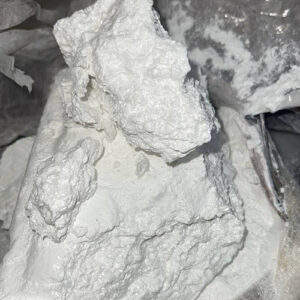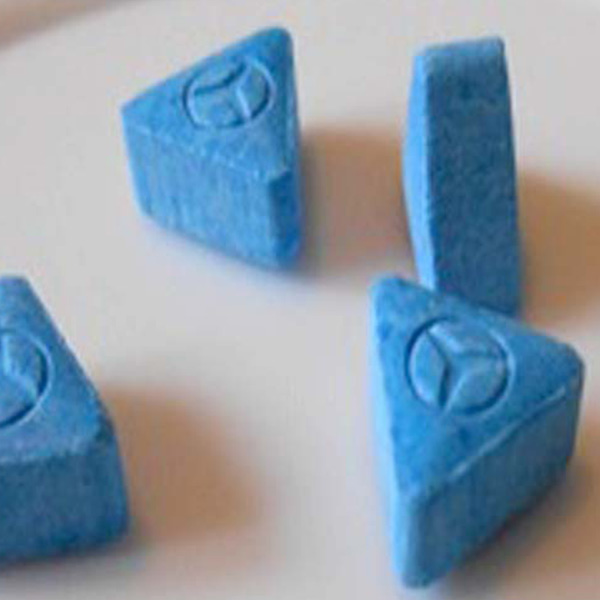Description
What is hotel cocaine?
Explore Hotel Cocaine, the premier destination for luxury nightlife and exclusive events, while offering trusted options to buy cocaine safely and discreetly.

Hotel cocaine refers to cocaine used or found in hotels or related areas.
It is a powerful stimulant derived from coca leaves and grown primarily in South America.
This drug appears as a white crystalline powder called cocaine hydrochloride.
Users often seek out hotel cocaine for its intense euphoric and stimulating effects.
Hotels provide a discreet space where cocaine use and trafficking are common.
Again, Hotel cocaine is associated with illegal trafficking and recreational drug use worldwide.
How is hotel cocaine made?
Cocaine leaves are harvested and chemically processed into cocaine powder.
This production takes place primarily in Colombia, Peru, and Bolivia.
Cocaine hydrochloride powder is used for snorting or dissolving for injection.
Crack cocaine is made by mixing cocaine with baking soda and heating it.
This smokable form produces faster and more intense effects than the powder.
Both forms of cocaine are commonly used in hotel cocaine use.
Effects of cocaine on the body
When users use cocaine in hotels, it blocks the reuptake mechanisms of neurotransmitters in the brain.
This blockade causes a spike in the production of dopamine, serotonin, and norepinephrine in the brain.
Users experience euphoria, increased energy, increased alertness, and increased self-confidence.
These effects usually last 15 to 30 minutes before wearing off quickly.
Repeated use leads to tolerance, dependence, and an increased risk of health problems.
Cocaine use in hotels rapidly increases heart rate, blood pressure, and body temperature.
Pink Cocaine.
Pink cocaine is an increasingly popular stimulant, thanks to its striking bright pink color.
Dealers mix it with other chemicals to achieve this unusual pink color.
Users are often unaware of the substances that are in these adulterated powders.
The pink dye gives the drug a different, more attractive appearance on the illicit market.
Using pink cocaine produces intense bursts of energy and euphoria.
However, it also carries serious health risks, including heart problems and anxiety.
Authorities warn of unknown ingredients that increase the dangers and unpredictable effects.
Many users develop an addiction without fully understanding the effects of this modified drug.
Street versions of cocaine, including pink cocaine, are becoming increasingly varied and carry increasing risks.
Medical experts urge caution, as these mixtures are often toxic and harmful.
Awareness of the potential dangers of pink cocaine is increasing in many communities.
Crack Cocaine
Crack cocaine is fast becoming one of the most dangerous drugs of today.
Users smoke small rocks that are made by mixing cocaine powder with baking soda.
The drug produces an intense effect by rapidly increasing dopamine levels in the brain.
This feeling of euphoria and an almost immediate energy boost is felt.
However, the effect wears off quickly and often only lasts for a few minutes.
As a result, users take repeated doses and use it regularly.
Crack cocaine causes serious health problems, including heart problems, breathing problems, and anxiety.
It also causes paranoia and aggressive behavior in many users.
People become addicted, which severely affects their physical and mental health.
This drug is illegal worldwide due to its destructive effects.
Treatment programs offer therapy, coaching, and support to help users recover.
The company emphasizes prevention and awareness to reduce the harmful effects of crack cocaine.
Cocaine use in hotels
Hotels are common places where cocaine use and trafficking take place discreetly.
Guests snort lines of cocaine off surfaces such as mirrors, tables, or specially prepared trays.
Some users smoke crack cocaine or inject dissolved powder in hotel rooms.
The anonymity of hotels and the transient clientele make drug trafficking easier and harder to detect.
Hotel staff often overlook the first signs of cocaine use, but they do notice suspicious behavior.
Cocaine use in hotels is becoming an increasing challenge for security and management teams.
Risks of Cocaine Use in Hotels
Cocaine use in hotels carries serious risks to physical and mental health.
Short-term risks include heart attacks, strokes, heat exhaustion, and aggressive behavior.
Chronic use damages the nasal mucosa, causing infections and possible collapse.
Psychological effects include anxiety, paranoia, hallucinations, and addiction.
Repeated use increases the risk of overdose, which can lead to death.
Cocaine emergencies in hotels often require emergency medical attention and treatment.
Trafficking in Hotels
Hotels serve as meeting places and temporary storage facilities for cocaine dealers and buyers.
The temporary nature of hotels facilitates quick transactions and reduces the risk of detection.
Some hotel employees may, unknowingly or intentionally, participate in cocaine trafficking.
These illegal activities damage the reputation of hotels and jeopardize the safety of guests.
Cocaine trafficking in hotels continues to be a major problem for the hospitality industry and law enforcement.
Signs of Cocaine Use in Hotels
Hotel employees are trained to recognize common signs of cocaine use in guests.
Signs include nervousness, frequent visits to the bathroom, and possession of small bags.
The presence of white powder residue on surfaces often indicates recent cocaine use or preparation.
Agitation, talkativeness, and mood swings are typical behavioral signs.
The presence of many visitors or unusual cash transactions can indicate drug use.
Hotels are increasing their security measures to detect and prevent cocaine use in hotels.
Medical support for cocaine users in hotels
Several health organizations offer treatment for people who are addicted to cocaine.
Detox programs help users safely stop using cocaine.
Behavioral therapy and psychological support improve mental health and reduce the risk of relapse.
Harm reduction services, including needle exchanges, reduce the risk of overdose and infection.
Some hotels partner with local clinics to provide support to their guests.
Local support groups are expanding to help more people affected by cocaine use.
Cocaine bear
The story of Cocaine Bear captivated the world. In 1985, a black bear found and ate cocaine that had been thrown from a fleeing drug plane.
During a chase in Georgia, 32 kilos of cocaine leaked from the plane.
The bear accidentally ingested a lethal amount, resulting in his death.
This bizarre event shocked many with its unusual details.
Now, filmmakers are creating a darkly humorous thriller titled Cocaine Bear, inspired by this incident.
The film depicts a strange scenario in which the bear, after consuming the cocaine, goes on a violent rampage.
The true story highlights the dangerous consequences of drug trafficking and smuggling.
This bizarre event continues to fascinate audiences and symbolizes tragic and unusual moments in recent history.
Alternatives to Cocaine Use in Hotels
It is advisable to find healthier, drug-free ways to improve your energy and mood.
Exercise, such as running, yoga, and dancing, releases natural mood-enhancing substances.
Creative hobbies such as music, art, and volunteering provide enriching enjoyment.
A strong social network and professional support help prevent drug use and manage stress.
Hotels now offer wellness programs, fitness centers, and mindfulness workshops.
Choosing healthy alternatives reduces the risks associated with cocaine use in hotels.
Summary Hotel Cocaine
Cocaine in hotels is a complex problem involving consumption, trafficking, and law enforcement.
This drug causes serious physical, mental, social, and legal problems in hotels.
Awareness and treatment can reduce the harmful effects of cocaine in hotels.
Hotels are increasingly responsible for detecting and preventing cocaine use on-site.
People suffering from cocaine addiction should seek help and adopt healthier lifestyles.
Together, the company is working to create safer, drug-free hotel environments around the world.
FAQ
1. Can cocaine cause mental health problems?
Yes, cocaine use can cause anxiety, paranoia, hallucinations, and depression.
2. How does cocaine affect the heart?
It increases heart rate and blood pressure, which increases the risk of heart attack and stroke.
3. Is cocaine use legal?
No, cocaine is illegal for recreational use in most countries. It is a controlled substance.
4. Does cocaine have medical uses?
Cocaine is rarely used medically as a local anesthetic during certain surgical procedures, but it is strictly regulated.
5. What happens during cocaine withdrawal?
Withdrawal symptoms include fatigue, depression, increased appetite, and intense cravings.
6. How is cocaine addiction treated?
Treatment includes behavioral therapy, counseling, support groups, and sometimes medication for symptoms.
7. Can cocaine use affect pregnancy?
Yes, cocaine use during pregnancy can cause miscarriage, premature birth, and developmental problems in the baby.
8. How do you know if someone is using cocaine?
Symptoms include: dilated pupils, increased energy, nosebleeds, irritability, and financial problems.
9. What should you do in the event of a cocaine overdose?
Call emergency services immediately and try to keep the person calm and able to breathe until emergency services arrive.
10. Can cocaine use cause permanent brain damage?
Chronic use can lead to permanent cognitive and emotional problems due to changes in brain structure and function.





Michael Isla –
Great value for money, better than other I’ve tried.
Gabriel Clarisse –
I use it daily, very happy with it.
Noah Amorette –
It’s my second one—I love it that much.